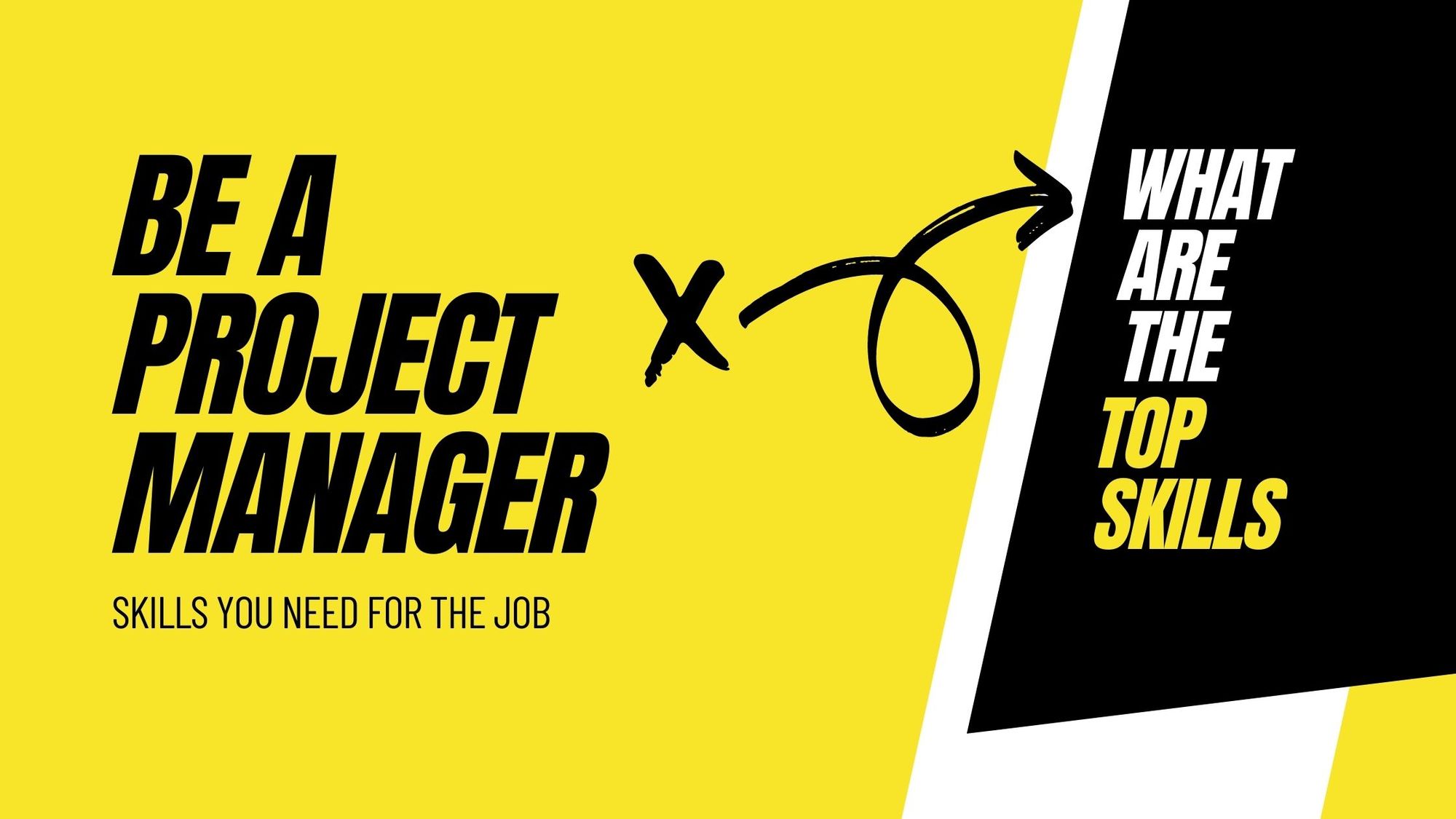The role of a project manager is both complex and evolves quickly. That means you need to be up to speed on the latest and greatest skills to be a top candidate for the role.
For many organizations, project managers are the catch-all resource often because of their ability to do many different things at once. To that end, some organizations report losing valuable resources because of poor project management. So the demand for top talent is high and competition for the best companies is steep.
PRO TIP: Project managers love to take screenshots and annotate files to explain ideas and give feedback. Have you tried Markup Hero yet? It's the perfect tool for you project toolbox.
In the past, companies held certifications and education as a top qualification for project management candidates. And while those are still important, they aren't as critical as they once were. Today, companies value hands-on experience and practical skills much more.
Experienced project managers have not only successfully run projects from start to finish, they've likely dealt failure and breakdown as well as missing deadlines or poor project scopes. Project managers who been through the ups and the downs of the role are generally more effective because they know what didn't work.
Here are some of the top activities seasoned project managers focus on:
- Launching projects
- Supervising the project
- Assigning tasks
- Setting deadlines
- Planning and managing budgets
- Risks management
Academic qualifications are valuable, but not a priority for organizations looking to fill project manager jobs. It's all about practice and experience. Let's dig into the most important skills and why.
Leadership Skills
The project manager is primarily a leader. Leadership skills are essential for a project manager to coordinate with every team member to achieve the set goal.
Good leadership requires knowing how to set a goal and inspire others to contribute their quota to its actualization. Gaining leadership skills will set you apart from the rest of the pack as a project manager.
Although some people are natural-born leaders, it is possible to develop leadership skills through systematic study and observation. Research shows that leadership is a lifetime activity. People can acquire leadership skills through training, perception, practice, and experience.
While many project managers can manage a project, only a few have the leadership skills to take their teams to the promised land. Investing in your leadership skills today will yield positive results in the future. There is a high demand for project managers that can manage their teams and inspire them to higher productivity.
Budget Planning Skills
Every project is planned and executed based on a budget, which is the estimation of the expenses required to complete it.
Organizations rely on their project managers to create a budget that will deliver the project on time and at a minimal cost.
Statistics show that 70% of projects fail and few organizations complete their projects on time without going over the budget. One of the main reasons why many projects get abandoned is the lack of proper project planning.
Many companies have paid an enormous price by hiring incompetent project managers who created defective designs, gave wrong estimates, and implemented poor cost control techniques.
Modern project management requires someone with the budgeting skills to protect companies from exposure to financial risks. Tracking finances is critical in any management operation, be it calculating labor expenses, or fixed or variable costs, only with exact budget knowledge will a manager be able to allocate resources right.
Technical Skills
It is hard to think of any project management task you can accomplish efficiently today without using productivity tools or other software solutions.
If you want to find the perfect role as a project manager, take time to learn some basic technical skills in project management.
Technical skills are the expert knowledge required to perform some actions related to the technological or electronic sector. Having technical skills increases your value as a project manager. Organizations have different project management tools and would prefer someone with the expertise to handle them.

Because technology is always evolving, a project manager should constantly update his technical skills to remain relevant. The more technical skill a project manager has, the easier it will be to adapt and fit into any project management role.
Time Management Skills
Time is a scarce resource, and the capacity to manage it has become an invaluable skill. For many businesses, poor time management is a big concern. Time wasting by workers and poor time management inhibits productivity.
Time management is one of the most sought-after skills by organizations looking for a project manager. Time management affects the scope, quality, and cost of a project.
Knowing how to prevent time wasters and deliver a project on time will save an organization limited time and resources. Also the ability to keep records of work hours of team members help in effective accountability in an organization.
There is no project without a deadline. It is, therefore, the responsibility of the project managers to make sure workers complete projects on time.
To deliver projects on time, managers need to possess excellent time management skills and prioritize important tasks.
Communication Skills
From the inception of human civilization, communication has played a vital role in helping people work together as a team.
A project manager is the head of a team comprising different individuals, all working together to accomplish a particular goal.
Wherever you have many people working together, it creates conflicts caused by a lack of good communication.
There are many benefits of effective communication in project management. Some of them include;
- Provides direction
- Builds trust
- Boosts creativity
- Encourages collaboration
- Increases productivity
- Prevents conflict.
The way a project manager communicates affects both the team and the project. Ineffective communication can completely derail a project. Experts have found poor communication skills as a chief contributing factor in many failed projects.
Fortunately, project managers can develop their communication skills through;
- Practicing
- Listening
- Being concise
- Giving feedback
- Being courteous
- Being clear.
The management of any organization goes through the project manager to reach the workers. The workers also rely on the project manager to convey their feelings to management. Being able to send every side’s point of view at the right time is crucial to the realization of the project.
A project manager will be able to communicate well with various ways of communication. Sometimes this may mean using webinar software to meet with a group of people working on a project, other times it may mean replying to an email from a single person or talking to someone directly.
Communication skills are one of the most crucial aspects of project management and those that master this skill are likely to have great success.
Conflict Management Skills
According to conflict theory, conflicts are unavoidable in every human society. Proponents of this theory believe that human beings have an instinct towards conflict.
PRO TIP: The best project managers know how to navigate cross-functional conflict. Try getting involved in small projects with few contributors at first to learn and practice the skill.
Project managers face many conflicts in their jobs and must have the skills to manage them to accomplish their mission.
There are fears there would be an increase in conflict because of the diverse nature of the project teams with members from different places.
Some causes of conflicts in project management include;
- Individual differences
- Conflicting interests
- Limited resources
- Communication breakdown
Because conflicts are inevitable during a project, a project manager must have the skill to manage the different interests in his team.
A good project manager should take advantage of conflicts that illuminate thorny issues and manage those that undermine the team’s productivity.
Organization Skills
One of the most important skills employers look for in a project manager is organizational skills. Keeping things organized and running well saves organizations a lot of money.
Although there are many kinds of organizational skills, they all help keep everything running smoothly to accomplish the project.
Some vital organizational skills include;
- Ability to set goals
- Punctuality
- Paying attention to detail
- Ability to inspire
- Calculated planning
- Ability to make critical decisions
- Being flexible to new tools for creating surveys, task management, video editing etc
Although many people do not think about it, the space where you work influences project results. A disorganized workspace affects the productivity of workers and costs employers money in the long run. Working in an organized fashion and inspiring your team to do the same is the hallmark of an effective project manager.
Fortunately, some organizational apps that can help project managers stay organized and productive. You will increase your value as a project manager when you learn how to use these apps.
Final Keys to Getting the Role
If you are serious about landing the perfect role as a project manager, you must have the skills that many employers are looking for in a candidate.
The first step is to find the perfect role is to recognize the skills you have and those you need to gain on your project management journey.
As with every other thing in life, there is always room for improvement. You will, therefore, be doing yourself a favor by taking advantage of every opportunity to acquire some of the project management skills listed in this article.
Most of the top project managers in the world today were not born with the skills that have taken them to the height of their profession. Rather, each of them has invested in acquiring the skills that have continued to make them relevant to the project management department.
Guest post by Andreyana Kulina, a Digital Marketing Specialist at Brosix, specializing in Content marketing and outreach strategies.


